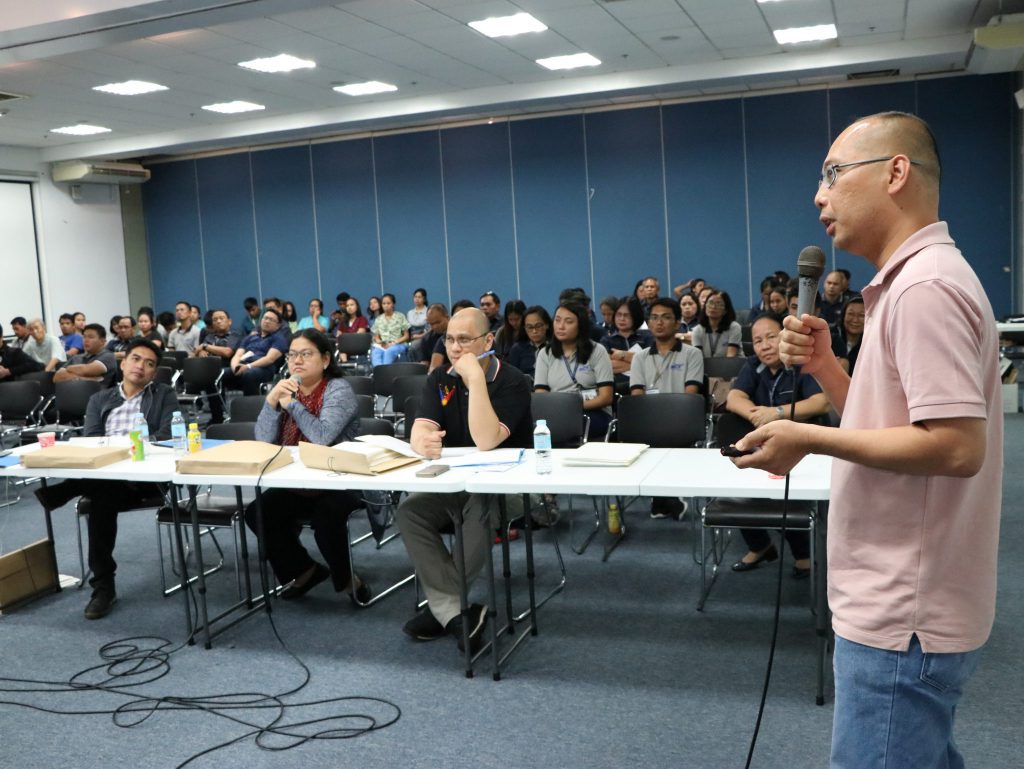Ensuring the congruence of the Philippine Carabao Center’s (PCC) research & development (R&D) efforts to its national research for development (R4D) agenda is an objective that PCC aims to achieve annually in its R4D In-House Review.
This year, 39 researches were evaluated during the review held last July 3-5 at the PCC National Headquarters and Gene Pool in the Science City of Muñoz, Nueva Ecija.
“By conducting this yearly, we are not only able to showcase the outputs of the R4D component of the Carabao Development Program but we are also able to monitor and evaluate both completed and on-going researches,” Dr. Annabelle Sarabia, R&D division (RDD) chief said.
The research papers were grouped into six thematic areas: Biosafety, Production Management System, Product Development, Socio-Economic Dimensions of CDP Implementation, Genetic Improvement-Animal Genomics or Genetic Diversity and Cryopreservation, and Genetic Improvement-Reproductive and Cryopreservation Techniques.
Dr. Caro Salces, PCC deputy executive director, emphasized that evaluation of research papers will pave the way toward determining new strategies that can help usher progress in the carabao industry.
Based on the results of the evaluation, recognitions were given in five categories.
The research “Microsatellite-based parentage verification of bovine breeds in the Philippines” by Melinda Reyes, Noriel Esteban, and Dr. Ester Flores won as the “best paper” in the completed research category; the “Comparison of animal relationships and milk yield breeding values obtained from pedigree BLUP and single-step GBLUP in Philippine dairy buffaloes” by Dr. Jesus Rommel Herrera, Dr. Ester Flores, Dr. Naomi Duijvesteijn, Dr. Nasir Moghaddar, and Dr. Julius van der Werf is the “best paper” in the student category; Lilian Villamor was hailed as the “best presenter” for her presentation of “Genetic Diversity of the Philippine Carabao Using mtDNA (COI) and Microsatellite Markers (FAO STRs)”; PCC-RDD’s Biosafety and Environment Section, and Reproduction and Physiology Section have the “Most Number of Approved Research Proposals for the Year 2018” with four proposals each; and the Animal Breeding and Genomics Section have the “Most Number of Presentations” during the review with 10 presentations.
The external evaluators invited by the PCC were Dr. Amado Angeles, director of Dairy Training and Research Institute (DTRI) of the University of the Philippines Los Baños (UPLB); Dr. Consuelo Amor Santiago Estrella, associate professor at the Institute of Animal Science (IAS)-UPLB; Dr. Ian Kendrich Fontanilla, director of UP Diliman’s Institute of Biology; and Karla Joy Ty, DTRI-UPLB university researcher. They assessed the technical integrity, relevance, and merits of the presented papers.
More than 100 participants attended the R4D In-House Review, mostly employees from PCC National Headquarters and Gene Pool, PCC regional centers, and students of Central Luzon State University.
The last day of the review was capped off with an orientation seminar on the Philippine Technology Transfer Act of 2009 or RA 10055 with the topics on Basics of Intellectual Property Protection and Application, and Insights on Prior Art and Claim drafting.
The act provides for “the framework and support system for the ownership, management, use, and commercialization of the intellectual property (IP) generated from research and development funded by government and for other purposes.”
Atty. Lucieden Raz, Technology Licensing Office head of the Technology Application and Promotion Institute,PCC IP officers Charity Castillo and Kristine Prades served as speakers. Ownership of IP and revenue sharing between researchers or authors are the key stipulations of the act that were discussed.
Dr. Eufrocina Atabay, PCC scientist I and IPR focal person of the PCC Intellectual Property and Technology Business Management (IP-TBM) team, said that PCC is now actively pursuing the commercialization and protection of its technologies through its IP-TBM team.
In 2018, PCC started a partnership with the Philippine Council for Agriculture, Aquatic, and Natural Resources Research and Development (PCAARRD) in the conduct of PCC’s intellectual property business operation. Last march, the IP-TBM office and marker at the Livestock Innovations and Biotechnology Complex in PCC National Headquarters and Gene Pool were formally launched.

